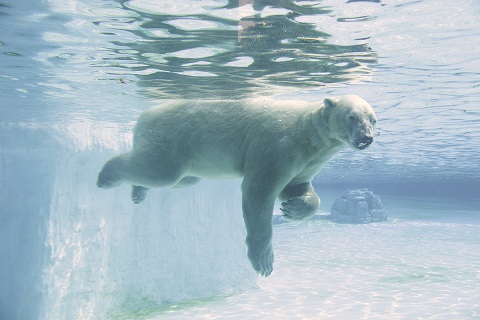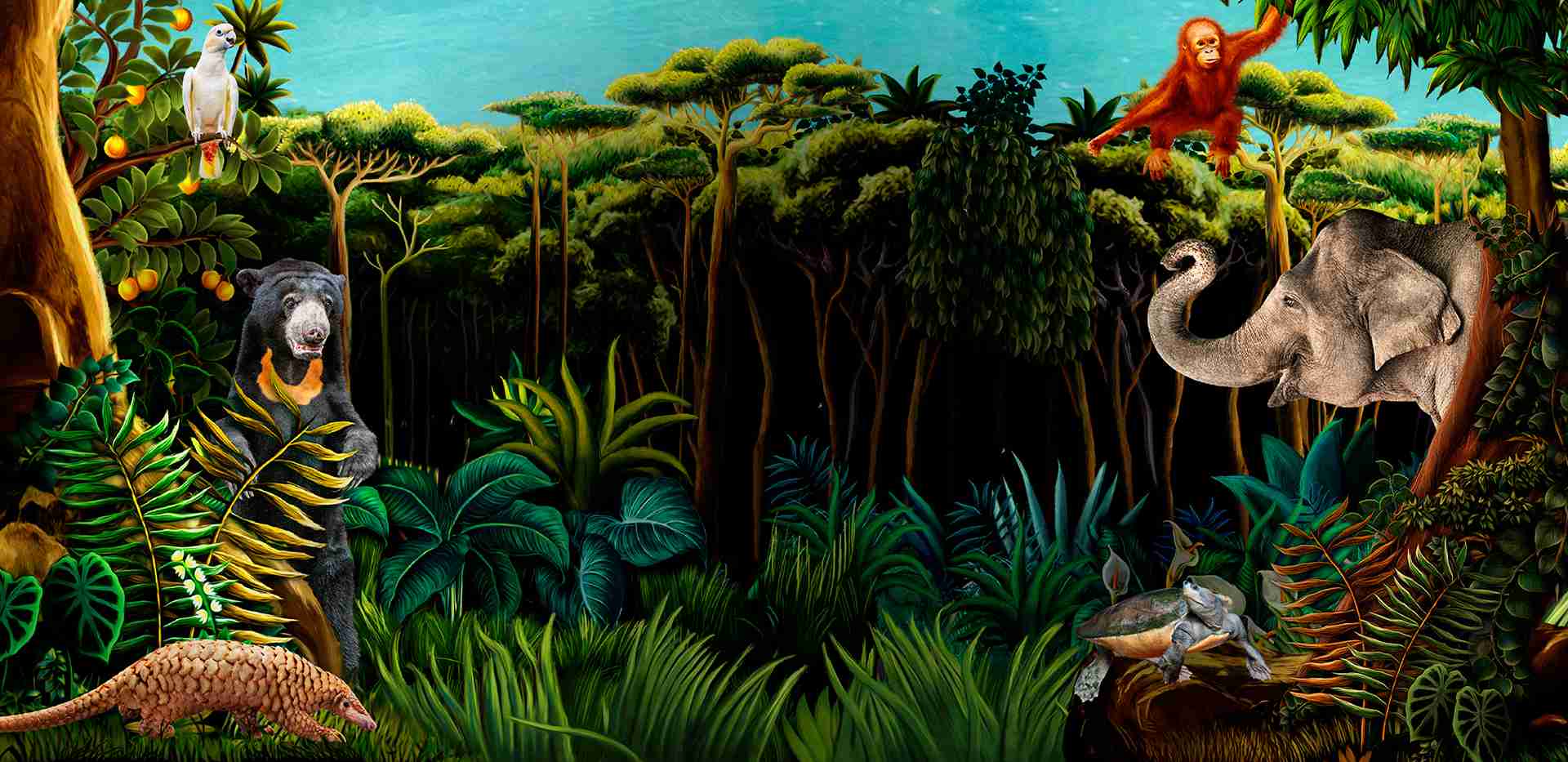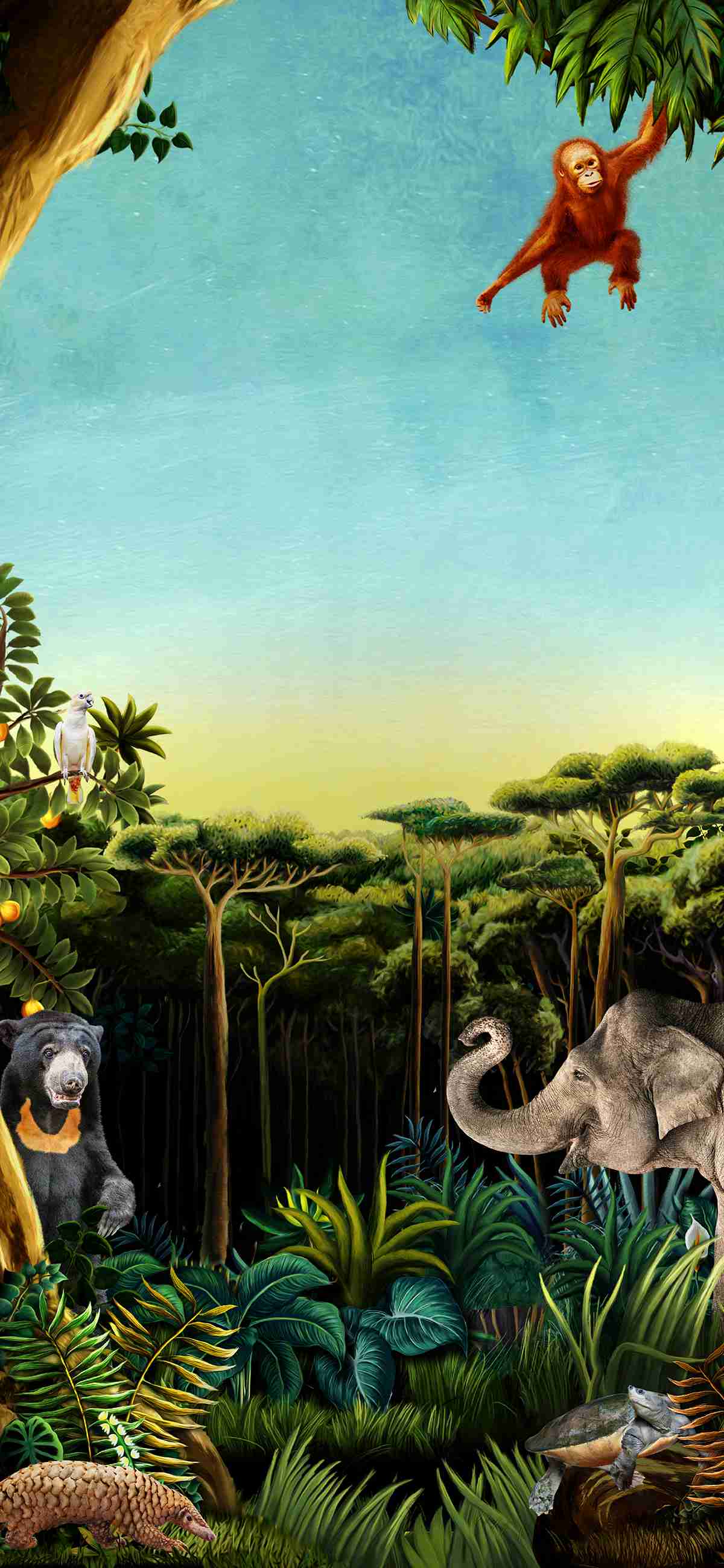Singapore Zoo's senior polar bear Inuka in declining health
Singapore Zoo’s beloved senior polar bear Inuka underwent a health examination on 3 April 2018, and results revealed that his health is declining markedly.
Born on 26 December 1990 in Singapore Zoo, 27-year-old Inuka is the first polar bear born in the tropics, and the park’s most prominent senior resident. Often dubbed the “best Christmas present” by his keepers, his year-end birthday celebration has been a tradition that many zoo goers look forward to. In human years, Inuka would be well into his 70s—making him a very old bear indeed. At this age, Inuka has surpassed the 25-year average lifespan of polar bears under human care. Male polar bears in the wild have a life expectancy of between 15-18 years.

Inuka, Singapore Zoo’s beloved senior polar bear. The health of the Zoo’s golden resident is declining, and his care team, consisting of vets and keepers, is closely monitoring him.
PHOTO CREDIT: WILDLIFE RESERVES SINGAPORE
In the past three months, Inuka’s activity levels have dipped noticeably, and he now prefers resting to participating in daily interaction sessions with his keepers.
Famed for his playful antics in the pool, the water-loving bear has reduced his swimming sessions significantly, and appears to be less interested in his daily enrichment activity involving a variety of devices such as traffic cones, boomer balls and ice blocks embedded with his favourite food.
While his arthritis, dental issues and occasional ear infections are already being managed, Inuka now exhibits a stiffer gait, particularly noticeable in his hind limbs. This abnormal shuffling gait has resulted in abrasions on his paw pads. Additionally, age-related general muscle atrophy is clearly evident.
Already on long-term glucosamine and anti-inflammatory treatment for his arthritis, vets have upped his daily care regime to include intensive treatment for his feet, and started him on specific painkillers and antibiotics to further alleviate his symptoms. His veterinary care team has given a guarded prognosis and are monitoring Inuka on a daily basis. His keepers are closely monitoring his welfare, and his quality of life assessment is under constant review.
A second health examination will be scheduled in late April to give further clarity on how he is faring. If results indicate that Inuka’s welfare is not improving with these intensive treatments, his care team may have to make the very difficult decision to not allow him to recover from anesthesia on humane and welfare grounds.
While daily polar bear interaction sessions have been suspended to allow Inuka to enjoy his time as he pleases, fans can continue to visit him at Singapore Zoo’s Frozen Tundra.
Singapore Press Holdings (SPH) has supported Inuka’s upkeep since birth. SPH Foundation, the charity arm of SPH, took over the adoption from 2007.
Polar bears were brought to Singapore in 1978, and offer a glimpse into the arctic for zoo guests. Aside from Inuka, Singapore Zoo was once home to his parents Nanook and Sheba, and another polar bear Anana. Following discussions with its Animal Welfare and Ethics Committee (AWEC) in 2006, the Zoo announced that it will not bring any more polar bears to Singapore. This is in line with the Zoo’s stronger focus on featuring tropical wildlife and threatened Southeast Asian species in need of ex-situ management programmes.

